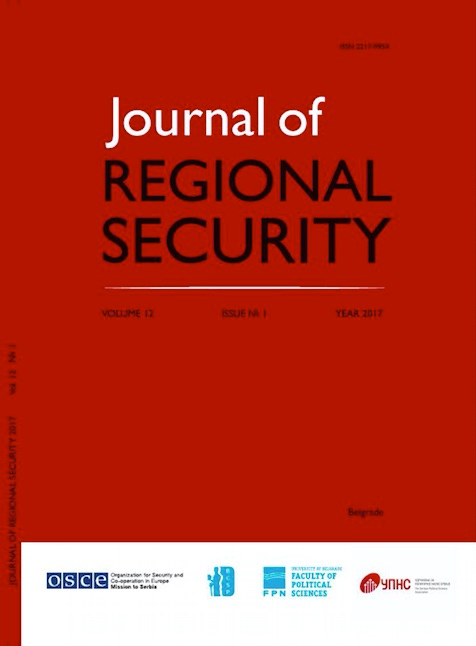Refugees, Readmission Agreements, and “Safe” Third Countries: A Recipe for Refoulement?
Sažetak
As states in the global North have adapted to the changing nature of irregular immigration through the adoption of legal instruments such as readmission agreements, academics in international relations (IR) and international law as well as human rights organizations have responded by critiquing failed attempts at refugee protection, putting forward their own frameworks, and documenting human rights violations and/or breaches of international law. Drawing upon Jennifer Hyndman and Alison Mountz’s argument that current policies contribute to the externalization of asylum as well as Alexander Betts’s work on cross-persuasion, this paper argues that readmission agreements with “safe third country” clauses are inherently problematic in terms of refugee protection. Specifically, it examines the 1992 Readmission Agreement between Spain and Morocco as a way to investigate how these agreements work in practice as well as an illustration of how the North−South impasse (identified by Betts) is reified in international law. Focusing on readmission agreements with safe third country clauses and supplementing academic research on treaty interpretation and international law with analysis by policy experts and reports from human rights organizations, the analysis considers the consequences of third-party readmission agreements with regards to international cooperation on refugee protection.
Authors retain copyright of the published papers and grant to the publisher the non-exclusive right to publish the article, to be cited as its original publisher in case of reuse, and to distribute it in all forms and media.
The published articles will be distributed under the Creative Commons Attribution 4.0 International License (CC BY). It is allowed to copy and redistribute the material in any medium or format, and remix, transform, and build upon it for any purpose, even commercially, as long as appropriate credit is given to the original author(s), a link to the license is provided and it is indicated if changes were made. / The published articles will be distributed under the Creative Commons Attribution ShareAlike 4.0 International license (CC BY-SA). It is allowed to copy and redistribute the material in any medium or format, and remix, transform, and build upon it for any purpose, even commercially, as long as appropriate credit is given to the original author(s), a link to the license is provided, it is indicated if changes were made and the new work is distributed under the same license as the original.
Users are required to provide full bibliographic description of the original publication (authors, article title, journal title, volume, issue, pages), as well as its DOI code. In electronic publishing, users are also required to link the content with both the original article published in Journal of Regional Security and the licence used.
Authors are able to enter into separate, additional contractual arrangements for the non-exclusive distribution of the journal's published version of the work (e.g., post it to an institutional repository or publish it in a book), with an acknowledgement of its initial publication in this journal.
Authors are permitted to deposit author’s pre-print / author’s post-print (accepted version) / publisher's version (PDF) of their work in an institutional repository, subject-based repository, author's personal website (including social networking sites, such as ResearchGate, Academia.edu, etc.), and/or departmental website prior or during the submission process / at any time after the acceptance of the manuscript / at any time after publication.
Full bibliographic information (authors, article title, journal title, volume, issue, pages) about the original publication must be provided and links must be made to the article's DOI and the license.

